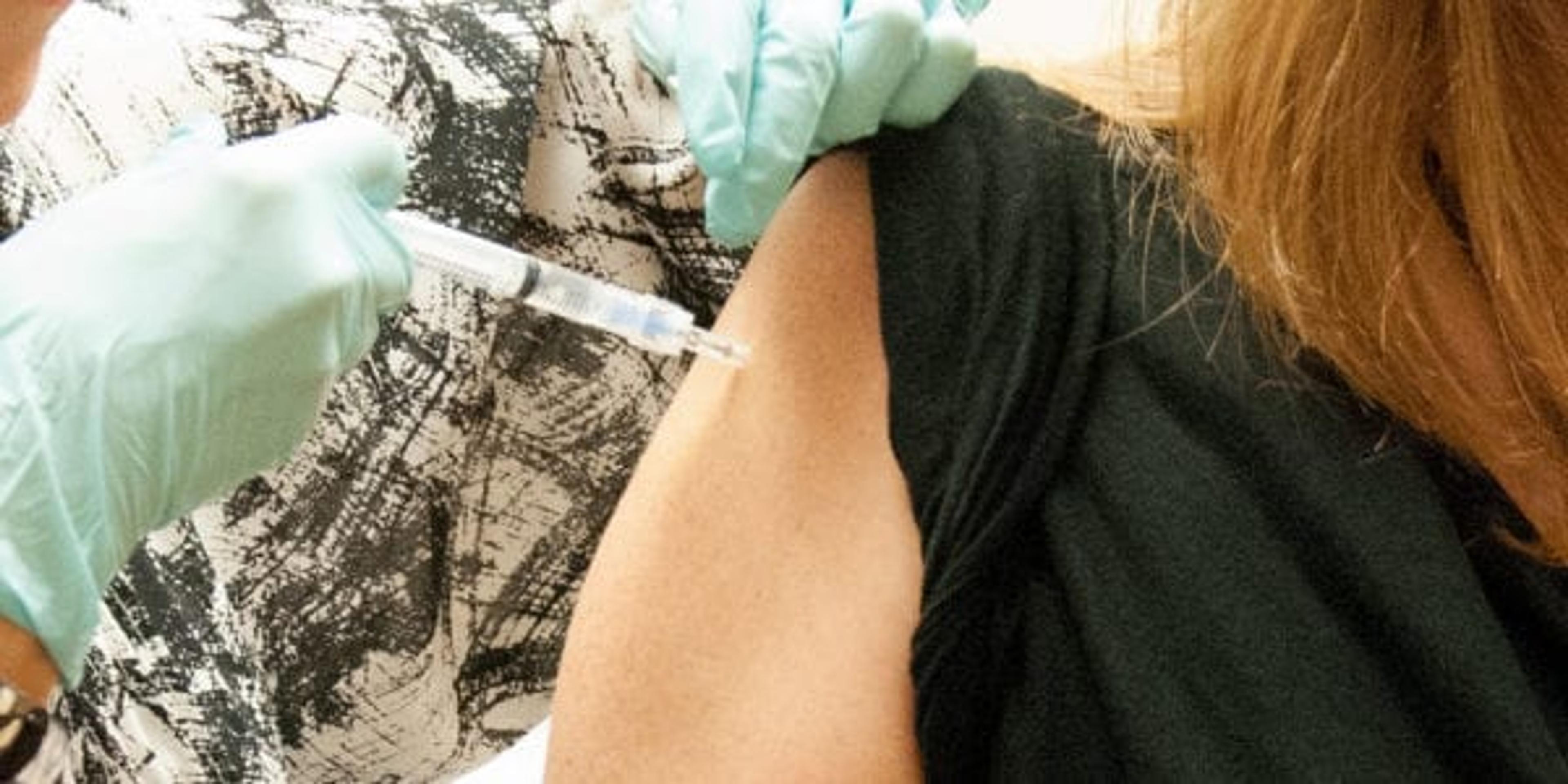What You Need to Know About Measles
| 5 min read

Cases of the measles in the United States have been down significantly, according to the Centers for Disease Control and Prevention (CDC), since 2019, when 1,274 individual cases were confirmed across 31 states.
Between Jan. 1, 2020 and Oct. 3 2022, only 86 combined cases of the measles have been confirmed.
Still, measles should be taken seriously. As a sometimes fatal infectious viral disease, measles occurs most often in the late winter and spring. The best way to protect against measles is to get the measles-mumps-rubella shot (also known as the MMR shot).
Here are answers to common questions about the disease and vaccine:
What are the symptoms of measles?
One to two weeks after a person is infected, initial measles symptoms will look very similar to flu symptoms: high fever, cough, runny nose and red, watery eyes. Two to three days after these symptoms appear, tiny white spots (called Koplik) might appear inside the mouth. Three to five days after initial symptoms, a red-spotted rash (commonly associated with measles) breaks out, and a fever spikes. The rash and fever usually end within a few days.
How does measles spread?
Infected people can spread measles to others from four days before to four days after the rash appears. The measles virus can live for up to two hours on a surface or in an airspace where the infected person coughed or sneezed (one more reason to wash your hands regularly and cover your mouth when coughing or sneezing). Measles is a disease of humans, and isn’t spread by any other animal species.
How serious is measles?
While measles itself is unpleasant, the complications can be extremely dangerous. Children younger than 5 years of age and adults older than 20 years of age are more likely to suffer from complications. Common complications are ear infections and diarrhea. Serious complications include pneumonia and encephalitis, according to the CDC.
What kind of vaccine is given to prevent measles?
The measles vaccine is included in MMR, which protects against measles, mumps and rubella. MMR is a weakened, live virus vaccine that causes a harmless infection in the vaccinated person with very few, if any, symptoms. The immune system then fights the infection, causing the person to develop immunity that will last throughout a person’s life.
How effective is the MMR vaccine?
According to the CDC, more than 95 percent of people who receive a single dose of MMR will develop immunity to all three viruses. A second dose of the vaccine has been reported to give full immunity if a patient doesn’t respond to the first dose.
Could I still get measles if I am fully vaccinated?
Very few people, roughly three in 100, who get two doses of the measles vaccine will get the virus if exposed.
What are vaccine recommendations for children?
It’s recommended for all children to get two doses of the MMR vaccine, starting with the first dose at 12 to 15 months old, and the second dose at four to six years old. Children can receive the second dose earlier as long as it’s at least 28 days after the first dose.
In addition to children, who should get the MMR vaccine?
The following groups of people are recommended to get the MMR vaccine:
- College students who aren’t immune to measles are encouraged to get two doses of MMR, separated by at least 28 days.
- Adults who aren’t immune against measles are recommended to get at least one dose of the MMR vaccine.
- Anyone over the age of six months and will be traveling internationally is recommended to receive the MMR vaccine prior to the trip.
- Healthcare professionals who aren’t immune to measles are encouraged to get both doses of the MMR vaccine.
Are there people who shouldn’t get the MMR vaccine?
The following people are advised not to get or delay getting the MMR vaccine:
- Anyone who has had a life-threatening allergic reaction to the antibiotic neomycin (or any other component of MMR vaccine) shouldn’t get the vaccine
- Anyone who has had a life-threatening allergic reaction to a previous dose of MMR should not get another dose
- People who are sick at the same time the shot is scheduled should wait until they’re fully recovered
- Pregnant women are encouraged not to get the vaccine until after giving birth. Women are recommended to avoid getting pregnant for 4 weeks after vaccination.
Why are people born before 1957 exempt from receiving the MMR vaccine?
People born before 1957 lived through several years of epidemic measles before the first vaccine was licensed. As a result, these people are very likely to have had the measles disease and 95-98 percent of those born before 1957 are immune. The “1957” rule only applies to measles and mumps but does not apply to rubella.
What should I do if I think I’ve been exposed to measles?
If you or your child show symptoms of measles, contact your doctor immediately and monitor the progress of the disease, as well as watch for complications. Additional measures you can take include:
- Rest and avoid busy activities
- Drink plenty of water and herbal tea to replace fluids lost by fever and sweating
- Use a humidifier to relieve cough and sore throat
- Many people with measles find bright light bothersome, so keep lights low and avoid reading or watching television.
What’s the treatment?
No treatment can get rid of a measles infection. However, non-immunized people (including infants) may be given the measles vaccination within 72 hours of exposure to the disease. Also, pregnant women, infants and anyone with a weakened immune system who are exposed to the virus can receive an injection of proteins (antibodies) that can help lessen the severity of symptoms.
Is the MMR vaccine covered under my Blue Care Network health plan?
Yes, the MMR vaccine is covered under your Blue Care Network plan.
For more information on recommended measles vaccinations from the CDC, please visit cdc.gov.
Read more:
Photo credit: NIAID





